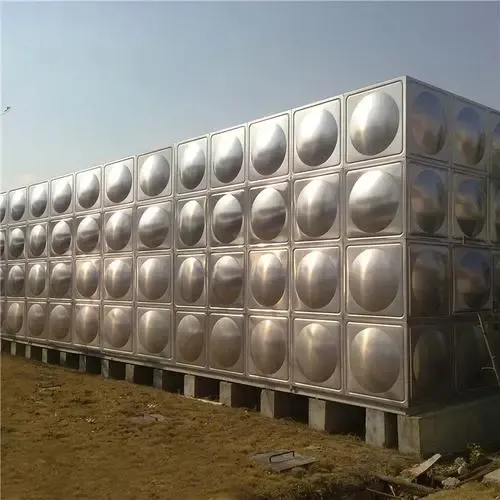loading...
- No. 9, Xingyuan South Street, Dongwaihuan Road, Zaoqiang County, Hengshui, Hebei, China
- admin@zjcomposites.com
- +86 15097380338
- Welcome to visit our website!
Innovative Approaches to Effective Wastewater Treatment and Resource Recovery Strategies
The Importance of Wastewater Treatment
Wastewater treatment is an essential process aimed at improving water quality by removing contaminants prior to the water being released back into the environment or reused. With an ever-growing population and industrial demands, effective wastewater management has become a critical aspect of sustainable development. The treatment of wastewater not only protects natural water bodies but also conserves fresh water resources, ultimately contributing to public health, ecological balance, and economic growth.
Understanding Wastewater
Wastewater primarily originates from residential, industrial, and agricultural activities. It contains a mix of organic matter, nutrients, pathogens, and various chemicals. If left untreated, this effluent can contaminate rivers, lakes, and groundwater, posing significant health risks to humans and aquatic ecosystems. Therefore, it is crucial to treat wastewater effectively to mitigate these hazards.
The Treatment Process
The wastewater treatment process typically involves three stages primary, secondary, and tertiary treatment.
1. Primary Treatment This initial stage aims to remove larger solids and debris from the wastewater through physical methods. Screens, grit chambers, and sedimentation tanks are commonly used. During this phase, approximately 50% of the suspended solids and a significant amount of pathogens are removed.
2. Secondary Treatment This biological stage focuses on degrading organic matter and nutrients. It often employs microorganisms that consume organic pollutants as their food source. Common methods include activated sludge systems, trickling filters, and biofilm reactors. Secondary treatment can reduce the biological oxygen demand (BOD) by 90% or more, significantly improving water quality.
3. Tertiary Treatment The final stage of treatment aims to further enhance water quality by removing remaining impurities. This process may include advanced filtration, nutrient removal, disinfection (using chlorine or ultraviolet light), and reverse osmosis. Tertiary treatment is particularly important for applications such as water recycling and replenishing aquifers.
Benefits of Wastewater Treatment
wastewater treatment

The benefits of wastewater treatment extend far beyond protecting public health. By effectively treating wastewater, communities can
- Protect the Environment Treated effluent can reduce pollution in natural water bodies, supporting the health of aquatic ecosystems
.- Conserve Water Resources Advanced treatment methods allow for the safe reuse of wastewater for irrigation, industrial processes, or even potable water, significantly reducing the demand for freshwater sources.
- Promote Economic Growth Clean water is vital for industries, agriculture, and tourism. Effective wastewater management creates opportunities for sustainable development and supports local economies.
- Enhance Public Health Proper treatment minimizes the risk of waterborne diseases and promotes overall community health.
Challenges and Innovations
Despite the numerous benefits of wastewater treatment, challenges remain. Aging infrastructure, inadequate funding, and increasing pollution levels pose significant obstacles. However, recent innovations and technologies, such as membrane bioreactors, biogas production from sludge, and artificial intelligence for process optimization, are paving the way for more efficient and sustainable wastewater management.
Conclusion
In conclusion, wastewater treatment is a critical component of modern environmental management. As urbanization and industrial activities continue to rise, investing in efficient wastewater treatment systems is essential for sustainable development. By ensuring that wastewater is properly treated, we safeguard our ecosystems, conserve water resources, and promote a healthy future for generations to come. As we explore new technologies and methods, the importance of treating wastewater cannot be overstated—it is a cornerstone of a sustainable and resilient society.
-
Transform Your Spaces with FRP Grating SolutionsNewsNov.04,2024
-
The Versatility and Strength of FRP RodsNewsNov.04,2024
-
The Excellence of Fiberglass Water TanksNewsNov.04,2024
-
The Benefits of FRP Grating for Your ProjectsNewsNov.04,2024
-
Elevate Your Efficiency with FRP Pressure VesselsNewsNov.04,2024
-
Welcome to the World of FRP Pressure VesselsNewsOct.12,2024
-
Unveiling the Future of Filtration: Why FRP Filter Vessels are a Game ChangerNewsOct.12,2024
